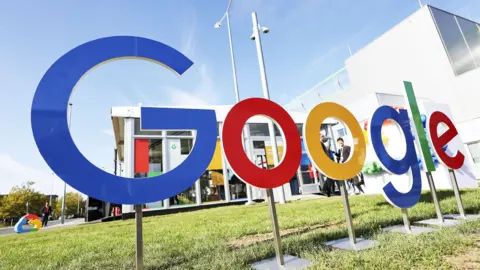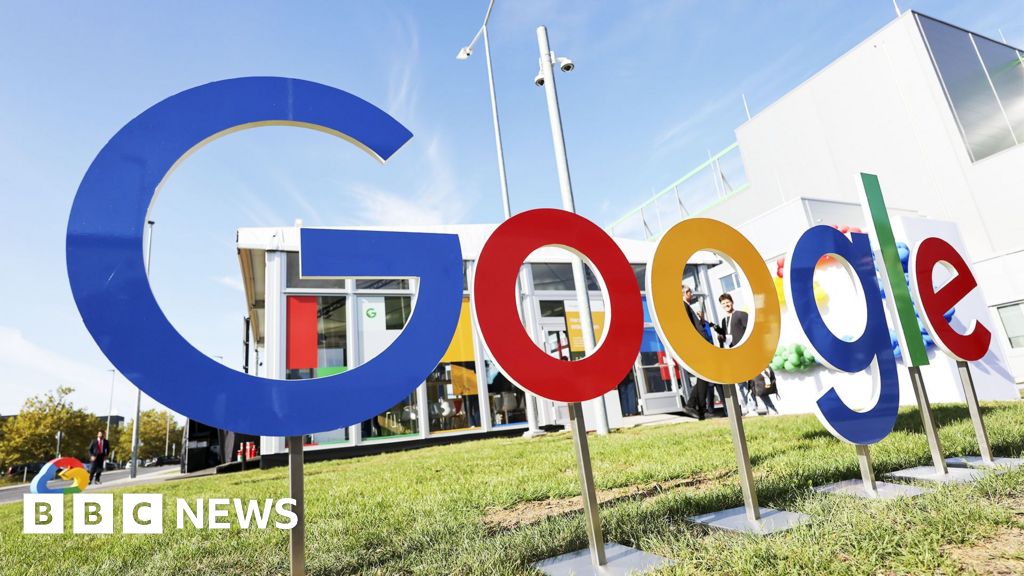By Imran Rahman-Jones, Technology reporter
 Getty Images
Getty ImagesGoogle’s greenhouse gas emissions in 2023 were 48% higher than in 2019, according to its latest environmental report.
The tech giant puts it down to the increasing amounts of energy needed by its data centres, exacerbated by the explosive growth of artificial intelligence (AI).
AI-powered services involve considerably more computer power – and so electricity – than standard online activity, prompting a series of warnings about the technology’s environmental impact.
Google’s target is to reach net zero emissions by 2030 but it admits that “as we further integrate AI into our products, reducing emissions may be challenging.”
In its 2024 Environmental Report, Google says it is “due to increasing energy demands from the greater intensity of AI compute.”
Data centres are essentially massive collections of computer servers – and AI needs a huge amount of them.
A generative AI system – such as ChatGPT – might use around 33 times more energy than machines running task-specific software, according to a recent study.
However, Google’s report also reveals large global disparities in the impacts of its data centres.
Most of the centres in Europe and the Americas get the majority of their energy from carbon-free sources.
This compares with data centres in the Middle East, Asia and Australia, which use far less carbon-free energy.
Overall, Google says about two thirds of its energy is derived from carbon-free sources.
“If you actually go into data centre, it’s really hot and really noisy,” says Tom Jackson, professor of information and knowledge management at Loughborough University.
“People don’t realise everything they’re storing in the cloud is having an impact on their digital carbon footprint,” he says.
Prof Jackson runs the Digital Decarbonisation Design Group, which tries to measure and find solutions to reduce the carbon footprint of data usage.
“Data providers have to work closely with large organisations to help them move away from storing so much of their dark data,” he says.
Dark data is data which has been collected by organisations but which has either been used once or not at all.
However, storing it on chips still takes up large amounts of energy even when it is not being used.
“On average, 65% of the data an organisation stores is dark data,” says Prof Jackson.
He commends Google’s target of reaching net zero in its data centres by 2030, but says it will be “really tough.”
The increasing energy – and water – use of AI has prompted a series of warnings, especially as the sector is forecast to keep growing rapidly.
The boss of the UK’s National Grid said in March that the combination of AI and quantum computing would lead to a six-fold surge in demand in the next 10 years.
However, Microsoft co-founder Bill Gates recently downplayed the environmental impact of AI.
Speaking in London last week, he suggested AI would increase electricity demand by between 2% and 6%.
“The question is, will AI accelerate a more than 6 per cent reduction? And the answer is: certainly,” he said, as reported by the Financial Times.

